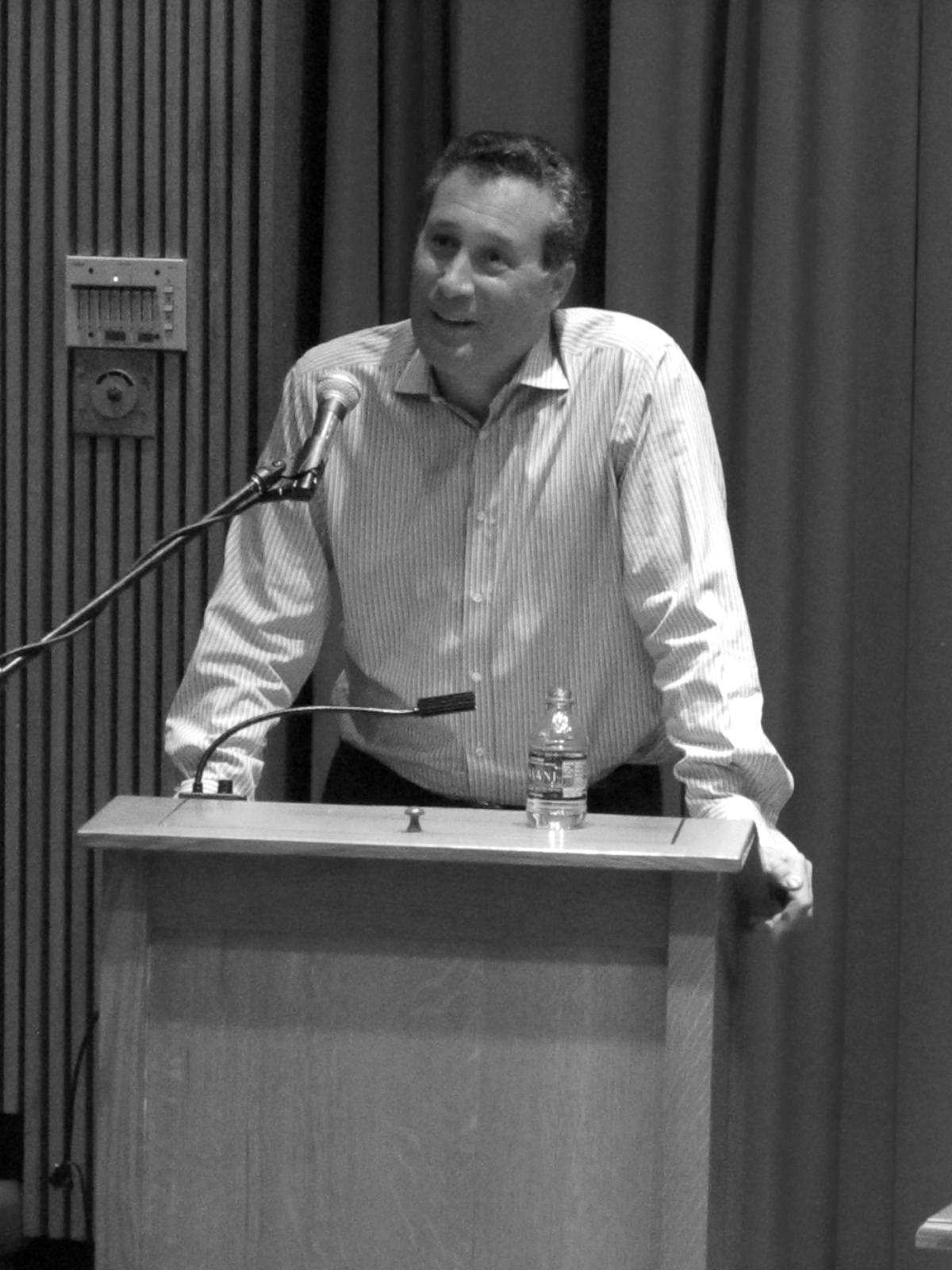

In response to an open letter from Khan Shoieb ’11, in which Shoieb called for college presidents to reclaim their roles as “public intellectuals” and in which he invited President Tony Marx to use the Amherst Political Union (APU) as a forum to address the members of the Amherst community on a topic of his own choosing, Marx spoke at Reflections from a Lame Duck: A Conversation with Tony Marx on Education Reform on Wednesday in the Cole Assembly Room of Converse Hall.
The talk featured Marx discussing his personal viewpoints on public and higher education in the United States, and then answering the audience’s questions provided him with. Marx spoke of the flaws he saw with the education system and of some changes he recommended from an educator’s point of view.
Hosted by the APU with help by a new campus organization, the EDU, the talk was a mechanism of advocating for college presidents to speak out on matters of public importance, a circumstance that is not normally present on campus.
According to Shoieb, the APU “jumped at the opportunity to have a president who is known as a pioneer in his field speak on the topic.”
After EDU, a new group on campus interested in education reform, heard of the event, they joined the APU to collaborate.
“I knew this would be the perfect thing for us to get involved in,” said Daniel Alter ’13, one of the two EDU members to have sat on the board to put this event together. “I was really glad to see President Marx open up and give us a look into some of his soul-searching on the topics of privilege, class, race and education.”
In his talk Marx focused on the immense national externalities that arise from a universally well-educated public and on his firm belief that the public school system does not lead to this desired outcome. He spoke out about the vast inequalities in our public schools, pointing out that the ratio of money spent on schools in the wealthiest regions of the country as compared to the poorest is seven to one.
“This means that seven times more is invested in those [already] with every privilege possible than in those who need it. There is no other ratio as telling or as damning,” he said.
Marx also spoke about how the problem is engorged by wealthy parents pulling their kids our of the public school system (and therefore pulling away some of the system’s largest pockets of support), teachers unions rallying around causes unhelpful to students, wage-based dissuasion of elite college graduates from choosing careers in education, administrative constraint and societal apathy.
He said that a society that fails to meet proper educational standards for all of its citizens cannot successfully in a global economy.
“You get what you pay for and this is a society that has decided that they’re not willing to pay for an education for everyone,” Marx said.
In the remainder of his talk and in much of his responses to the crowd’s questions, Marx discussed the dilemma of choosing between funding elite colleges like Amherst, which are pivotal in raising the nation’s future leaders, and the increasingly underfunded public universities and community colleges, which through affordability and efficiency offer a majority of American youth the chance for an otherwise unobtainable quality undergraduate education.
He then reasserted the responsibility elite colleges have in bettering their communities and becoming more accessible to low-income students, praising the College for sticking with its socio-economic reforms through recent economics hardships, a time when many of its peers, who were in a position to make similar policies, chose not to.